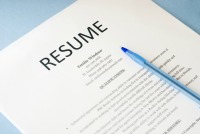Getting Better at the Process As You Go Along
 My move into coaching as my profession, took place in 2009. Once being certified as a Life Coach, I then began focusing my efforts on those I was meant to serve. Late in the year of 2010, I went to my local library one morning and attended a meeting of a group called Professionals in Transition. All the attendees were those who were in job search. The Recession of 2009 had put a number of people out of work. The group was formed as a support group so that those in search could pull their mindsets together, and help each other through what was a difficult, frustrating and often lonely process.
My move into coaching as my profession, took place in 2009. Once being certified as a Life Coach, I then began focusing my efforts on those I was meant to serve. Late in the year of 2010, I went to my local library one morning and attended a meeting of a group called Professionals in Transition. All the attendees were those who were in job search. The Recession of 2009 had put a number of people out of work. The group was formed as a support group so that those in search could pull their mindsets together, and help each other through what was a difficult, frustrating and often lonely process.
Moving forward from those initial interactions with the Professionals in Transition group, a series of steps started occurring in my life. I continued attending the sessions, at the request of the attendees, because they suspected given the flexibility in my schedule, (and proximity to where the meetings were held), that I could keep the group going on, even after many of them would find jobs, leave the group and move on. They saw me as a coach who might be able to help facilitate and present topics to the group that would help them, (and that perhaps I was closer than they were to others who could help the group and might come to visit and share their insights. They were right about that feeling). And, I was actually afforded shortly after that, an opportunity to get additional training in the world of job search strategy coaching, the principles of which I use to this day ten years later.
No question, the pandemic of 2020 and its after effects, have us in the worst job situation since that period 10 years ago. Are there jobs and are people getting hired? Yes, they are! Is it a quick process from point of losing job to getting hired for the next job? No it is not. However, whether it has been the skills I learned job searchers need to exhibit and apply from 10 years ago, anywhere along my coaching journey during these past 10 years, or even as we face the worst economic situation many say since the Great Depression of the 1930’s, I am finding those who are able to find work, are able to do so by applying principles that are as true now, as when I first learned them. The other thing is, the more time and practice applying the principles, their chance for success improves exponentially.
Many would like to think they apply to a job opening, (often these days online through a computer), a company gets their resume’, they are called in for an interview, and they are on their way. WRONG! Most people who only do that in their job search wait hopelessly by their phone or computers for an answer back. There are often hundreds of people applying to the ads. A computer screens for the most qualified candidates. So, a candidate soon learns their resume’ must have “exact language,” that matches the skills on the resume’ to the job description. Others learn, that yes, while they must apply online, they also should be following and connecting with those in the company to where they are applying. Perhaps a resource inside the company takes a liking to their resume’, and brings it directly to the hiring manager who shows interest in talking to them. One of the first lessons a job searcher hopefully ultimately learns is there are 4 ways to apply and follow for possible job opportunities, and a good searcher uses all 4 methods.
Next the job searcher learns it is not just about them, and a company hiring them for what skills and knowledge they have, but also for their “fit” or people skills with that company. Companies want to see how much research you have done on learning about them and their mission. They look for you to engage them during interviews with questions about the company’s challenges, culture, needs, and how the person in the role being interviewed for will fill them. In addition, the candidate soon learns they will likely talk to many people in the company, not just the hiring manager, but those whose area are impacted directly by the person working in the position which is being discussed. The things they must be prepared to discuss, need to be focused on the individual asking the questions, and their particular needs for the position with the opening.
The job searcher learns once the interview process starts it is an ongoing process. It can go many rounds. Additionally, after each round there are the need for follow up notes and letters, not only thanking the people who took time to talk to them, but making sure those communication are tailored to major items that came up during those conversations. The interview process is both an interview and follow-up process where the candidate continues to show interest in the opportunity. A lack of follow-up can often be perceived as a lack of interest in the position.
In the early months of search, these steps and others not spoken of here, are awkward for the person in search, especially as they may have not had to use such skills for a long while. However, after having used them for several possible openings, and seeing how the process actually plays out, they become better at them along the way. They get to understand themselves better, what they offer, and what parts of their background are intriguing to hiring companies. The interviewer becomes better stating their strengths and how they have performed in similar roles in the past. And, most of all, they develop a great listening ear for what it is that the company truly needs from the person that will ultimately be offered the position in question.
And, yes, once receiving an offer an accepting the job role there is great relief on the part of the job searcher. There is part exhilaration, part relief and part gratefulness for those who have helped them along the way. But, the key thing I always see is someone who took the time to learn the process, got better at both practicing and executing its nuances, and willing to share what they learned with others who are faced with a similar situation somewhere in the future.
